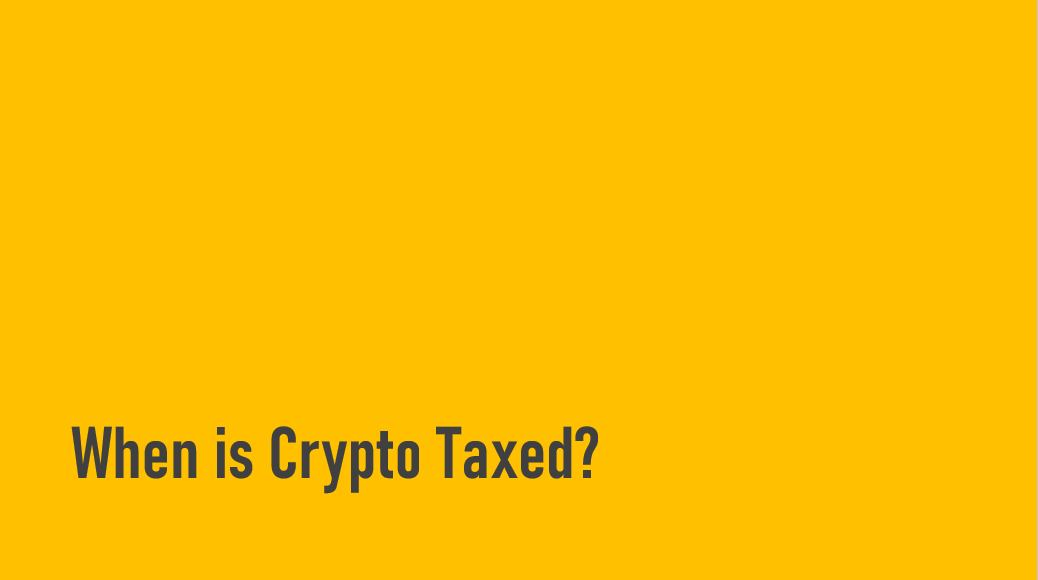Crypto Business Income - Taxes and Accounting
99% of Crypto Tax Convos are Personal Income Based. So what about Crypto Business Income? You'll experience schadenfreude when it comes to that.
TL;DR: Are you a business needing Crypto Financial Accounting? God help you.
Hey you! United States Tax filing is due on April 15 16 17 18! You can use VITA, FreeTaxUSA, and TaxHawk (And no, not TurboTax, or even worse, H&R Block) to get free-ish taxes. And if you traded or sold NFTs in 2021, welcome to adulthood.
But today’s publication isn’t about Personal Income Tax & Crypto.
No, dear reader.
Today is about:
Crypto Financial Accounting for Businesses.
Don’t tell 2015 me this.
As always, you can find TL;DRs and graphics as I try not to implode of hopeless laughter as tell you about the concepts.
In Case You Missed It
Sections You Can Skim To
When is Crypto Taxed?
Whats the Generally Accepted Accounting Principles on Crypto Assets?
What are the Regulatory Tax Authorities doing?
How do we treat Crypto Business Income from a Tax POV?
What about NFTs & Tokens?
What are you doing?
TL;DR: As an individual? When you sell it. As a business? It depends.
As Personal Income
As an individual (personal income / personal tax return), Crypto is taxed when you sell it, or otherwise, get rid of it or trade it out. Crypto is treated as a form of property for Federal Income tax purposes as stated in the 2014 Notice 2014-21, 2014-16 I.R.B. 938. It’s similar to how taxes work for stock with a few nuances.
Crypto is taxed when it leaves you.
Selling it
Trading it
Disposing of it.
As Business Income
Now if you are operating as a business and earn Crypto-based income, well, the answer is it depends, and good luck to you in trying to figure that out.
TL;DR: GAAP or IFRS are what CPAs, CFOs, and accountants follow.
For everyone who doesn’t deal with financial statements:
Companies conform to a set of General Accepted Accounting Principles, or GAAP, when it comes to Financial Reporting of a Company. Balance Sheet, Income Statement, that kind of stuff.
Knowing GAAP gives me a lot of credibility to tell you that you totally misclassified your revenue / income and that you’re misleading people.
In the United States, we refer to this concept as simply GAAP. Internationally, it is referred to as IFRS, or International Financial Reporting Standards.
TL;DR: We haven’t agreed on one.
Internationally
On the Accounting of Crypto Assets
PwCIFRS does not include specific guidance on the accounting for cryptographic assets and there is no clear industry practice, so the accounting for cryptographic assets could fall into a variety of different standards. (Source)
…we don’t have anything directly impactful to say at the moment.
Check back when you buy your first home, Millenials.
Unites States:
On the Accounting for Crypto Assets
KPMGThere is no specific US GAAP on crypto assets. (Source)
I kid you not, that’s exactly how its summarized. Don’t believe me? Here’s the screenshot word for word.
Really what I’m trying to illustrate to you is that companies are going to come up with different ways on classifying their crypto-based assets. Depending on the underlying intent behind the crypto asset types, a specific set of accounting principles / treatment will be applied. However this will make it probably pretty hard to read one Crypto Financial Statement to another Crypto Financial Statement unless the same understanding is disclosed.
TL;DR: IT IS ALL OVER THE PLACE.
Depending on the country you are in, your regulatory authority is still trying to catch up.
In India, they are trying to banned Crypto.
China has banned Crypto.
The European Union is trying to align it with their Anti-Money Laundering Laws.
The U.S. issued an Executive Order around exploring Digital Assets.
The U.S. Treasury Secretary Janet Yellen has indicated Crypto Industry should follow the same rules and regulation as the traditional financial system.
EY sums it best:
On US Regulators and States
EYVarious US regulators and states have devised unique approaches to address and regulate cryptocurrencies, but a cohesive framework of regulation has yet to be created… (Source)
New York has a BitLicense thing going on. But uh, Wyoming has passed some form of Digital Asset Law. It’ll confuse you too.
TL;DR: It depends. Except imagine “it depends” in the most finest used cars salesman print. Here I did it for you:
It depends.
On Tax Treatment
Deloitte
One of the issues is…there’s no clear consensus on how to treat crypto assets. Some countries, such as the US, see them as property. Others are looking at them as financial assets and commodities. (Source)
Oh that’s great.
On Regulatory Tax Authority
EY
Tax authorities are struggling to come to grips with the exponential growth in digital assets. This has led to a lack of consensus among tax authorities around how to treat them. The tax implications of purchase, ownership and sale vary widely between jurisdictions, embedding an unnerving level of ambiguity, complexity and risk that individuals and corporate tax teams must navigate… (Source)
My take on this is this:
It depends on the intent of the asset. But also, it’s probably going to end up in the Intangible - Other Asset category for a lot of companies. Probably.
TL;DR: It’ll be a great learning opportunity for you.
On Tokens & Taxes
KPMGFor holders of cryptoassets such as tokens, the tax position is likely to be more complex – similar to the accounting. They will need to understand the rights and obligations of the underlying asset as well as how the cryptoasset is being used to determine whether it might be subject to tax on an income or capital basis. Further, holders of cryptoassets may need to consider their deferred tax position if the tax does not follow the entries in profit or loss. (Source)
Okay it’s not so bad.
But it’s still kinda bad.
The good news is, blockchain uses public ledgers that allow you to find all the transactions, and thus, allow you to review and classify them without the need for manual data collection.
The bad news is that it’s an incredible amount of data. A data set I’m working with for 3 months worth of transaction activity for a public ledger has around 197,000 Blockchain Transactions.
Except each blockchain transaction contains its own set of sub-transactions ranging from 4 to 20 sub-activity. The true size of the data set in, in Excel, is about 2.3 million rows.
Excel maxes out at 200k.
lol
TL;DR: I’m doing a lot of things!
I have scoured the internet, I have unearthed different tools, and I even subbed $300 to Crypto Accounting Software. I even read the public accounting equivalent of white papers (thought leadership).
So far, here are my thoughts:
Missing Content: A significant majority of literature around Crypto Tax is on Personal Income based.
Lack of Tools: All easy-to-use tools I’ve interacted with are Personal Income Heavy, also with underwhelming reporting features
Of the tools I have used that could meet my requirements
They don’t work.
Data is not complete and accurate. Ironically.
The UI is limiting so that I can only classify 25 transactions at a time.
Crypto Accountants have a future in review & judgement of business activity
Individual Content Creators and Influencers who form LLCs are absolutely underserved in Crypto Business Accounting Services.
Your Partners at your CPA firm probably have no clue either.
Here’s my call:
So my call to the world is this:
Whoever makes technology and tools that make Financial Statement Accounting that much easier in the crypto space, you are going to be rich. Include me, okay? Alternatively, someone give me resources and I’ll go product manage a team to make it happen.
Here’s all my readings that influenced today’s post:
Yes it’s mostly EY. They have the most presence in this space.
PwC: Cryptographic assets and related transactions: accounting considerations under IFRS
EY: How taxes on cryptocurrencies and digital assets will soon take shape
OECD: Crypto-Asset Reporting Framework and Amendments to the Common Reporting Standard
The White House: Ensuring Responsible Development of Digital Assets









